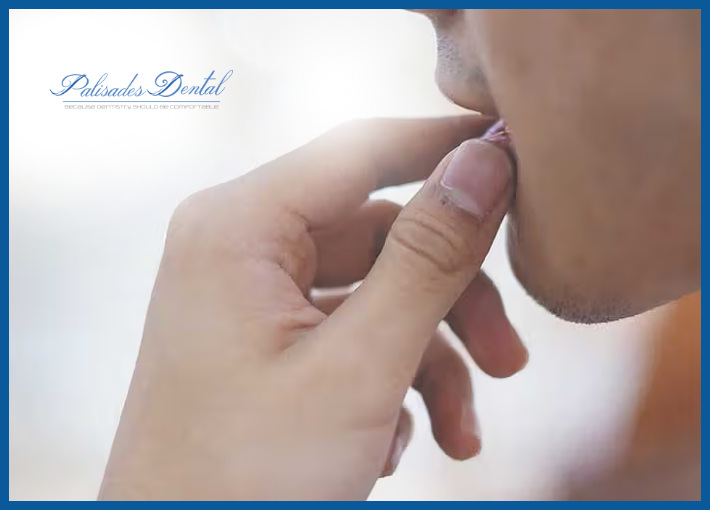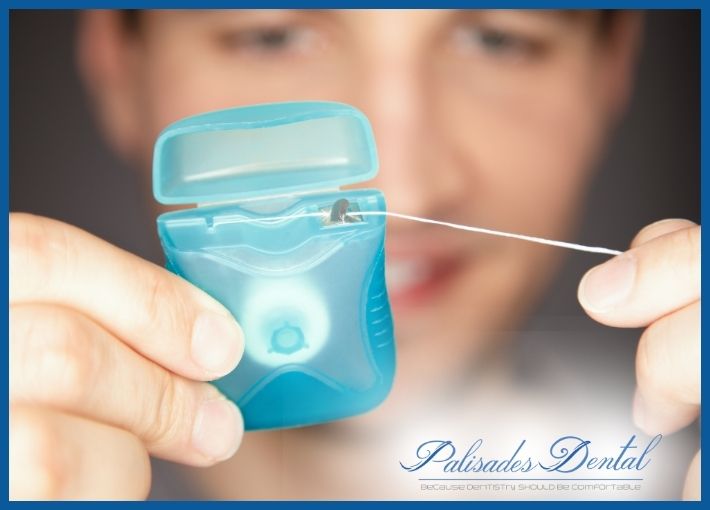Do you ever experience an unexplained salty taste in your mouth that lingers throughout the day? The sensation of a salty taste in your mouth can be perplexing and, in some cases, quite bothersome. While it’s not an uncommon issue, it may leave you wondering about the underlying causes and potential remedies. Let’s explore effective ways to relieve it, helping you regain the fresh, balanced taste you’re accustomed to.
Have other questions about your oral health? Our team is here to take care of ‘all the things’ for your whole family. Dr. Youngquist and his team care about you having the very best dental experience: seamless and comfortable — with any of your concerns carefully addressed.
You may have a salty taste in your mouth for a variety of reasons. Some are benign and nothing to worry about, but others are more serious.
You may notice this taste even when you haven’t eaten or when you first wake up. Other symptoms, such as the sensation of a dry mouth, may accompany it.
6 Potential Causes of a Salty Taste in Your Mouth
Aside from eating something salty, here are possible reasons you may have a salty taste in your mouth:
1. Dry Mouth
Dry mouth, or xerostomia, is a relatively common condition. In addition to a salty taste, your mouth may be dry. Your saliva may also be thick, stringy, and sticky. You may also notice:
- Bad breath
- Hoarse voice
- Sore throat
In most cases, the solution for a dry mouth is as simple as staying hydrated. Dehydration and electrolyte imbalances can make your mouth dry. You may be dehydrated when you first wake up in the morning.
However, xerostomia can also be caused by smoking, certain medications, and some less common health conditions like Sjögren’s syndrome. Talk to your doctor or dentist if you frequently experience dry mouth symptoms.
2. Dehydration
Moderate to severe dehydration can cause more than an altered feeling and taste in your mouth. If you’ve lost a lot of water through sweating, diarrhea, or vomiting, you may also experience:
- General uneasiness (malaise)
- Difficulty thinking or focusing
- Severe thirst
- Weakness
- Dizziness
Dehydration can lead to hypernatremia (high blood sodium). This may cause a strong salty taste in addition to the above symptoms.
You can prevent dehydration by consuming an adequate intake of water and electrolytes. But if you’ve lost a significant amount of water and can’t think or move normally, see a doctor immediately.
3. Post-Nasal Drip
If you have a cold or seasonal allergies, you may have post-nasal drip. This occurs when mucus buildup from your sinuses goes down both your throat and nose.
This mucus can then get into your mouth, which can taste salty. This isn’t anything to worry about on its own. Just continue to rest and drink fluids if you have a cold.
Certain foods, irritating chemicals or nasal sprays, and cold temperatures can also cause post-nasal drip. However, see a doctor if you have symptoms of a severe infection or allergic reaction, such as:
- Difficulty breathing
- Green or yellow mucus when you cough or blow your nose
- Blood in your mucus
- Severe coughing
- Sinus-related or cold-like symptoms that last more than 10 days
4. Blood in Your Mouth
Having blood in your mouth can produce a salty or metallic taste. This could happen due to an oral injury or a nosebleed.
You can usually stop a nosebleed or minor oral bleeding quickly. Applying pressure with your hands or a compress may be enough. However, see a doctor if you:
- Have a nosebleed lasting 20 minutes or longer
- Have frequent nosebleeds without an apparent cause
- Become lightheaded, dizzy, or unable to concentrate
- Are coughing up blood
5. Oral Infection
Oral bleeding or a general foul taste may be caused by an oral infection, such as:
- Gum disease (bacteria inflaming the gums)
- Oral thrush, an oral yeast infection
- Oral human papillomavirus (HPV)
See your dentist or doctor if you have persistent burning pain in your mouth, hoarseness, or a change in the appearance of your tongue or gums.
6. Nutrient Deficiency
Having a lower-than-healthy amount of certain nutrients may cause a salty or metallic taste in your mouth. Some common nutrient deficiencies that can affect your taste buds include:
- Vitamin B12, found in meat, eggs, and dairy
- Vitamin B9 (folate), found in legumes, dark leafy greens, and eggs
- Vitamin C, found in citrus fruits, tomatoes, and potatoes
- Zinc, found in meat, shellfish, legumes, nuts, and seeds
It can take years for a nutrient deficiency to develop and cause symptoms. In addition to a salty, sour, or metallic taste, you may also notice:
- Fatigue
- Confusion
- Irritability
- Irregular heartbeat
- Numbness in your extremities (hands, feet, lips, tongue)
Treatment for a deficiency may involve getting a shot or oral supplement of the nutrient in question. To avoid nutrient deficiencies, try to maintain a balanced diet. Dietary supplements are also available over the counter (OTC).
Other Causes
Less common causes of a salty or otherwise altered taste include:
- Sjögren’s syndrome, an immune disorder that affects your tear ducts and salivary glands
- Hormonal changes during pregnancy or menopause
- Certain medications, especially those that cause dry mouth
- Chemotherapy or radiation therapy
- A leak of cerebrospinal fluid (CSF) due to an injury, surgery, or another cause
When to See a Doctor
A salty taste in your mouth usually isn’t a sign of anything serious. But you should let your doctor know if you have:
- Long-term changes in your sense of taste or how your mouth feels
- Noticeable changes in the appearance of your mouth, gums, lips, or tongue
- Blood in your mucus
- A sore throat or sinus symptoms that last more than 10 days
In rare cases, there may be a medical emergency causing your altered taste. If you have difficulty breathing or standing up, or if you’re in severe pain, see a doctor immediately.
How to Treat This Condition
A salty taste in your mouth may not need treatment beyond drinking water. A dry mouth due to mild dehydration may be the cause. In cases of severe dehydration, IV hydration may be required.
However, more specific or severe causes will require different treatments. These may include antibiotics, antihistamines, or vitamin injections.
Can You Prevent a Salty Taste in the Mouth?
The easiest way to avoid an unexpected salty taste is to stay hydrated and maintain a balanced diet. Also, avoid excessive nose-picking to avoid causing a nosebleed.
Experience the relief of a fresh, balanced taste. Explore our tips and tricks for achieving and maintaining a healthy mouth and teeth. Schedule your appointment today at 801-756-1009. For more teeth whitening in American Fork, follow us at @palisadesdental.
Reference: [https://www.newmouth.com/oral-health/salty-taste/]









